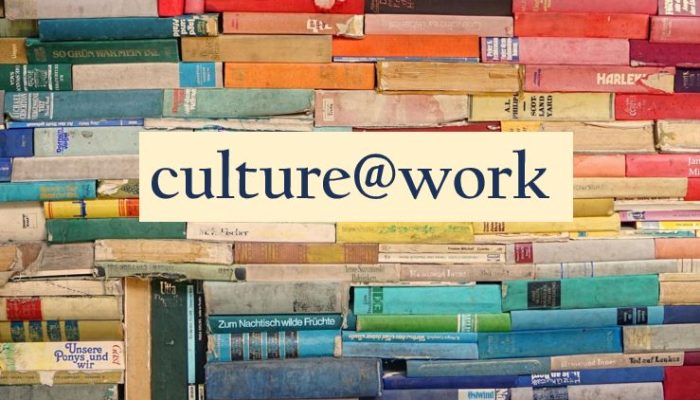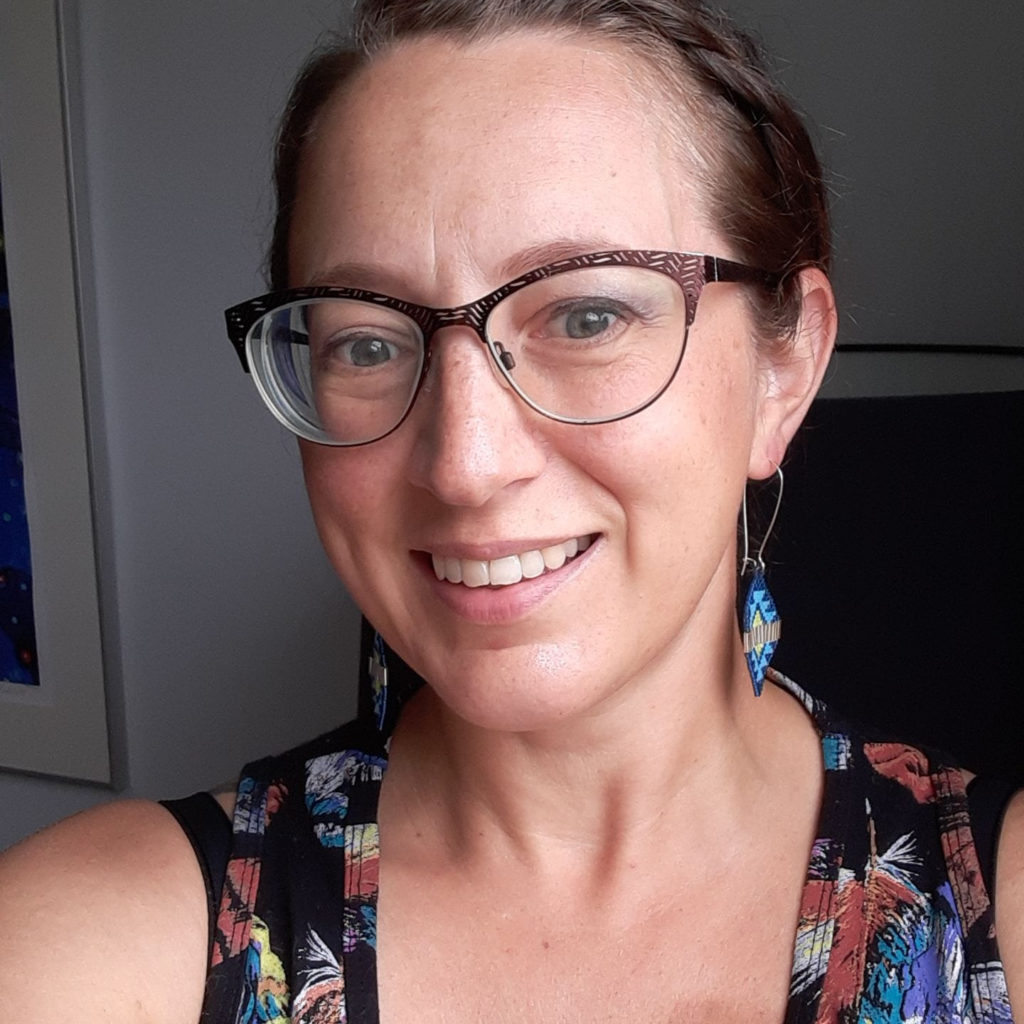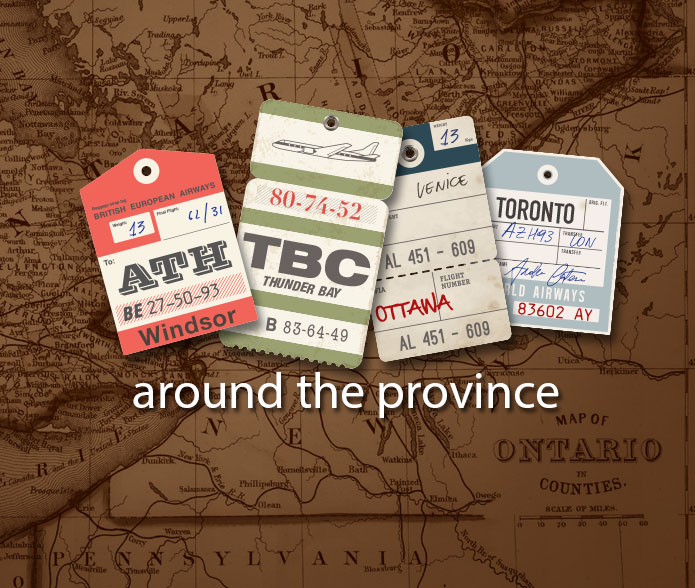Can mentorship help you in a career transition? Toby explores this as he recounts his decision to walk away from a tenure-track faculty position to become a librarian. Through OLA MentorMatch, he met with Jennifer Peters who helped him find where to focus on his job search.

Cultural diversity and inclusion in the workplace
Welcome to culture@work, brought to you by the OLA Cultural Diversity and Inclusion Task Force. This column showcases diversity in library work in Ontario by introducing Open Shelf readers to library staff from around the province. By highlighting the experiences of library workers, we hope readers will get to know more of their OLA colleagues and perhaps be inspired by, if not more informed about, issues of diversity in librarianship in Ontario, and perhaps beyond.

Name: Tiffany Miller
Title: Indigenous Library Liaison
1. Where do you work?
My name is Tiffany Miller and I am the Indigenous Library Liaison at Confederation College in Thunder Bay, Ontario. I am of Métis and mixed European descent and hail from Treaty 3 territory. I have the great pleasure of being the point of contact for students and faculty in the Indigenous Program stream. Plain and simple, I love working with students. Students are always eager to learn and often open to explore new ways of doing and thinking.
Additionally, as an Indigenous Liaison, I have opportunities to sit on committees that allow me to advocate for diversity and inclusion within the college community. Having decolonial conversations, creating new and exciting programming and finding resources that support these efforts are my jam. Two of my favourite programs are the Negahneewin Reading Series faculty book club that celebrates Indigenous literature and Biboon, a winter storytelling event. Both of these events involve doing what I enjoy the most, bringing people together to share stories, engaging in meaningful conversation and learning.
2. Tell me a little about yourself. Why have you chosen to work in libraries? How did you end up working in libraries?
I have always loved libraries, but as a teen, I was completely oblivious to the fact that my love of libraries had the potential to become a profession. In my defense, at that time I was looking towards working in the Arts through college-level programs. It was not until I applied for a job as a student computer help desk attendant at Confederation College Library that I was exposed to the profession, and I immediately fell in love with working in an academic library environment. However, after already completing two diplomas I didn’t want to invest the time and money into another diploma or degree. It just wasn’t financially feasible.
It wasn’t until years later that I ran into a former colleague, Lisa Jack, now the manager of the Paterson Library, that I was presented the opportunity to work at Confederation College and earn a Library Technology diploma. The Indigenous Liaison role is one that I had plenty of qualifications and lived experience for, but I did not have the right credentials to just walk into a library and get a job. As my manager Lisa Jack said to me back then “I have a sense for people that should work in the library and you are library people.” To this day I am grateful for her support and insight, as I would not be here today if it wasn’t for her.
3. Tell us about cultural diversity and inclusion. What do you think libraries can do to be more inclusive? Have you faced any barriers? Why do you think diversity is important for our library communities?
The core values of libraries align with the principles of diversity and inclusion and yet, the profession can be quite exclusive. This is not at the fault of people who work in libraries, just more reflective of the colonial systems with which libraries operate alongside and within. Post-secondary education is more accessible than ever and yet, a university education is not something every citizen has access to; socioeconomic status is a major factor. I truly believe that this limits access to the profession, particularly for latecomers. At midlife, what is the cost-benefit of dropping $50,000 or more to get a BA and an MLS? It’s hard, especially with property and the cost of living inflating at a faster rate than incomes.
As a latecomer to the library I am very aware that my diploma/degree pigeonholes me in my income earning potential. Additionally, one’s title does affect how one is treated or respected in the library world. Many times I’ve heard the word uttered, but you are “just a tech” or “just a liaison” out of the mouths of an MLS. While I respect the time and money others have invested in their careers, I do think if we are going to make libraries more inclusive we need educational institutions and employers to give more credit to individuals (and not just say they are going to) for lived experience and knowledge. I would also like to see MLS programs consider alternative entry pathways. A library technician with years of service should be offered entry into an MLS program. Alternatively, why isn’t there a bridging program? After all, before university programs, many people worked in libraries with no education at all and we still called them librarians. If libraries want to appeal to more diverse populations, we need to evaluate and create more pathways into the profession.
4. What continues to inspire you on the job/in your career?
What inspires me the most in my career is being an active participant in the dialogue for social change. Not only do I get to contribute or make suggestions on how the college can be more inclusive and create safe spaces, but I have built amazing relationships with students, faculty and staff. I love planning programming and bringing people together in creative and new ways. I genuinely enjoy facilitating difficult conversations about racism and colonialism. There is something very satisfying about creating a space in which people feel safe to explore their discomfort and their biases and have a genuine conversation about our realities, barriers and opportunities. Every conversation counts and we must find ways to make sure that there is always diverse representation at the table.
5. What piece of advice would you give to diverse librarians beginning their career as well as to those librarians in their mid-career?
This question feels a little bit like advising myself, because here I am at 40, only 2 years into my library career. Regardless, my advice to other late-starters or diverse library staff would be “you belong.” Change and progress are slow, and oftentimes the change we want to see does not happen as fast as we would like. I’ve heard many of my IBPOC and LGBTQIA2S+ friends and colleagues say “I don’t belong here” and I know it feels that way (and also sometimes is that way). But the pathway to making libraries a place where everyone feels they belong is to create the places we want future generations to enjoy. So, my advice is that you aren’t alone, and you do belong. In the words of Brene Brown “stay brave, courageous and vulnerable.” Most importantly, network with peers and find mentors, like-minded individuals and allies in your institution and the profession, because they will get you through the tough days.
6. What work do you think librarians in Ontario need to do to work towards positive social change?
Remember that the creation of reciprocal relationships is the key to moving forward. Fostering relationships with the communities you want to reach in your broader community (be it the general public, a specific community, students or future library staff persons, this list could go on). Reciprocity is the most important piece of the reconciliation, diversity and inclusion recipe and the one that institutions often want to skip because it takes time. Relationship building doesn’t have an immediately quantitative unit of measure and we all know how much libraries and institutions measure our work by stats! Finally, become comfortable with owning what you don’t know. Like Brene Brown says “I’m not here to be right, I’m here to get it right.” I’d rather stick my neck out for a better future and make mistakes than not try at all.
